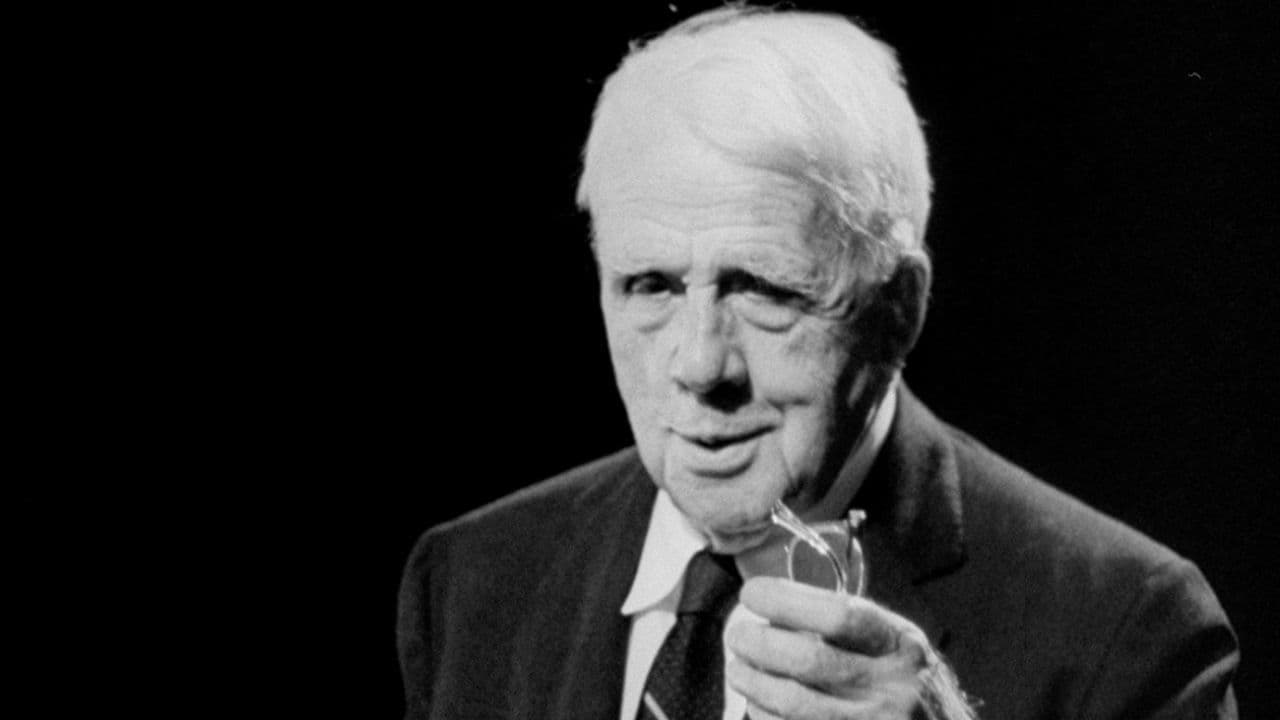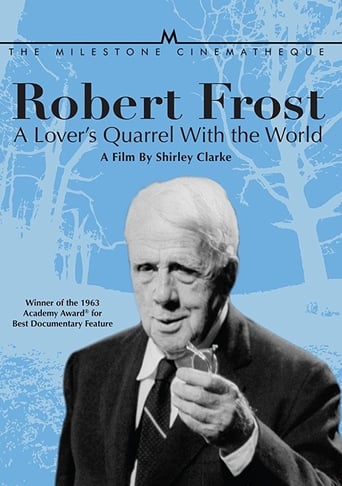Edgar Allan Pooh
" . . . though I've been pretty uneasy since 1896," an 88-year-old Robert Frost quips in 1963 during his namesake documentary, inexplicably subtitled A LOVER'S QUARREL WITH THE WORLD. This Portrait of a Poet as an Old Man features countless fawning reaction shots of then-young Sarah Lawrence and Amherst College coeds raptly getting off on Frost's Geriatric Guttural Gobble-Gobbles. (Many, if not most of these Beatnik Generation chicks voted to overrule the sane Millennial Choice and elevate a possible KGB spy into their role model Jackie Kennedy's walk-in closets.) But perhaps it is Robert E. Lee--for whom Robert Lee Frost says he was named--who rolled over in his grave to hear Rhymester Bob declare that rival poet Ezra Pound should have been shot for treason after ordering some spumoni from Mussolini. (Of course, "rebel" insurgent leader Bob Lee the First was NOT gunned down by a firing squad for leading a traitorous band of war criminals resulting in half a million U.S. Citizens being murdered, but was made the post-war president of the sort of university that Bob Lee the Second frequented in order to pay his utility bills.) But rest assured, Mr. Frost tells us here that he definitely knows the purpose of hemlock trees.
Chris_Docker
"Never do it to pay a bill – cos you probably won't." Robert Frost's advice to aspiring poets could apply to any calling in life. But especially to the arts. His passion for poetry not only paid his bills but won him four Pulitzer prizes. And Shirley Clarke's documentary of his life won her an Oscar.Robert Frost was a quintessentially American poet. He could express the charm of rural life with a depth that allowed this love of nature to inspire thoughts of life and the universe. We see him both through the eyes of a filmmaker researching his earlier years, and again with live footage, up close in his last months, still working. He is perhaps to Americans what Rabbie Burns is to Scots, so although his language is quite accessible it takes me a while to warm to the man.His common-garden assertions, "Peace is something you only get by war or the threat of war," need a little more substance to convince me. His pro-Americanism – "the greatest country that has ever existed" – sounds mere arrogance to a foreigner who doesn't happen to agree. He seems a nice man. But why are so many in awe of him? Then we have shots of Frost giving a lecture, including readings of his own work. A tremendous, vibrating voice. Eyes of many in the audience are glistening. Biting a lip, you can feel them savouring each syllable. (Yes, he also brings a tear to my sceptical eye.) Listening to Frost is almost a spiritual experience. There is no discernible reason for the effect his simple words have. He becomes his words. (Readers who remember the 60s can maybe identify with similar sort of charisma that Dylan held sway as you sucked into the words flowing off his tongue.) If Frost comes alive reading his verses, set in the countryside, it lets us see the man in a new light. As he digs potatoes. A man of the earth. Of the soil. But above all, a man. A man who can express in words to reach anyone the unique feeling of becoming one with the land. Breathing in the breadth of the countryside, its timelessness. A slower pace. One that re-charges overworked city batteries that run on caffeine and tomorrow's deadline."When I see birches bend to left and right Across the lines of straighter darker trees, I like to think some boy's been swinging them.But swinging doesn't bend them down to stay.Ice-storms do that." I had never more than glanced at Robert Frost's poems. But by the end of the film I was enchanted. His work has a pastoral quality reminding one perhaps of Seamus Heaney (Compare, if you will, 'Birches' with Heaney's 'Exposure'). Both men tend to blur the distinction between humour and seriousness. They want us to enjoy the grand cosmic joke that is reality.Frost is evidently pleased with the way Clarke is making the movie. He suggests, gesturing, that it is being done right 'this time' (apparently dissing earlier documentaries of his life). This involvement with the camera is typical of Clarke's tendency to make the film-making part of the subject of the film.A Lover's Quarrel with the World is less harrowing in style than Portrait of Jason, with its monolithic attention to the documentary subject until he breaks down and exposes his 'soul'. Clarke's portrayal of Frost is loving and respectful, yet also seems to bring out the essence of the man. This film is more accessible, and one of Clarke's most mainstream offerings. The structure eventually makes all the film an illustration of his lecture, his lecture an illustration of his poetry. The film becomes the Poem."I would have written of me on my stone: I had a lover's quarrel with the world," he wrote in his own epitaph. This line is from a poem called The Lesson for Today. In the film, Frost says, "I thought of modifying that, and saying I had my lover's quarrels, plural, with the world, but I make that one sustained quarrel all my life . . . It's a long sustained quarrel." And as if to balance wryly that thought with its opposite, another Frost saying is, "I never take my side in a quarrel." A remarkable accomplishment.

